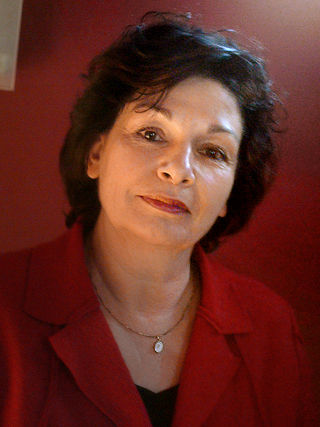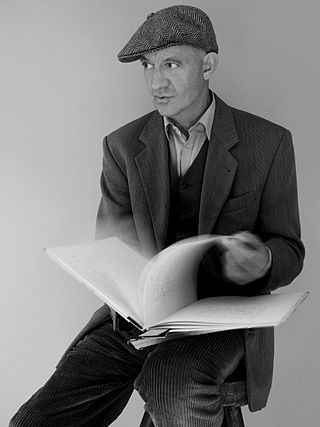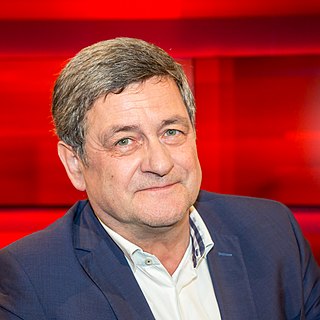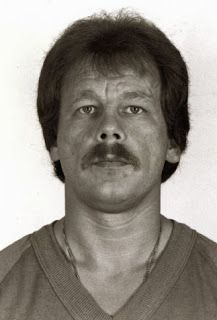
Hamburg Institute of International Economics (HWWI) is either a think tank [1] or a privately funded economic research institute [2] whose sole shareholder since 2016 has been the Hamburg Chamber of Commerce. [3]

Hamburg Institute of International Economics (HWWI) is either a think tank [1] or a privately funded economic research institute [2] whose sole shareholder since 2016 has been the Hamburg Chamber of Commerce. [3]
The HWWI was founded in 2005 to continue parts of the research work of the Hamburg Institute of International Economics (HWWA). [4] The scientific partner is Helmut Schmidt University/University of the Federal Armed Forces Hamburg. Until 2016, the University of Hamburg was also a shareholder of the HWWI. [5] The HWWI publishes the HWWI Commodity Price Index.
Since 2011, the HWWI has also had a branch office in Bremen. On February 12, 2007, a branch office was opened in Erfurt, [6] which has since been closed.
The scientific director of the HWWI since March 2022 is Michael Berlemann. Dirck Süß has been managing director of the HWWI since May 2021. Thomas Straubhaar was director of the institute until 2014, and Henning Vöpel until October 2021.
The HWWI produced studies on behalf of the employer lobby organization Initiative Neue Soziale Marktwirtschaft in 2017 and 2018. [7] [8]

Hamburg, officially the Free and Hanseatic City of Hamburg, is the second-largest city in Germany after Berlin, as well as the overall 8th-largest city and largest non-capital city within the European Union with a population of over 1.9 million. Hamburg's urban area has a population of around 2.5 million and is part of the Hamburg Metropolitan Region, which has a population of over 5.1 million people in total. At the southern tip of the Jutland Peninsula, Hamburg stands on the branching River Elbe at the head of a 110 km (68 mi) estuary down to the North Sea, on the mouth of the Alster and Bille. Hamburg is one of Germany's three city-states alongside Berlin and Bremen, and is surrounded by Schleswig-Holstein to the north and Lower Saxony to the south. The Port of Hamburg is Germany's largest and Europe's third-largest, after Rotterdam and Antwerp. The local dialect is a variant of Low Saxon.

The Bertelsmann Stiftung is an independent foundation under private law, based in Gütersloh, Germany. It was founded in 1977 by Reinhard Mohn as the result of social, corporate and fiscal considerations. As the Bertelsmann Stiftung itself has put it, the foundation promotes "reform processes" and "the principles of entrepreneurial activity" to build a "future-oriented society."

Gruner + Jahr is a publishing house headquartered in Hamburg, Germany. The company was founded in 1965 by Richard Gruner, John Jahr, and Gerd Bucerius. From 1969 to 1973, Bertelsmann acquired a majority share in the company and gradually increased it over time. After 2014, the company was a fully owned subsidiary of the Gütersloh-based media and services group. Under the leadership and innovation strategy of Julia Jäkel, Gruner + Jahr evolved into a publishing house producing cross-channel media products for the digital society.
VapianoSE is a European restaurant franchise company headquartered in Cologne. The chain's restaurants offer Italian food adhering to the fast-casual principle. Vapiano was established in 2002 in Hamburg. Its largest shareholder since 2011 is the private equity firm, Mayfair Vermögensverwaltung. Roughly one-third of the restaurants are operated by the company itself, but the majority are run as franchise or as joint ventures. In April 2017, Vapiano had 180 locations in 31 countries, including Australia, China, Egypt and the United States. On 20 March 2020, Vapiano announced its cash-flow insolvency due to a sharp drop in sales after most restaurants had to close due to the COVID-19 pandemic.

Claudia Kemfert is a German economics expert in the areas of energy research and environmental protection. She is a Professor of Energy Economics and Sustainability at the Hertie School of Governance in Berlin. She heads the Energy, Transportation, and Environment department at the German Institute for Economic Research.

Herlind Gundelach, is a German politician of the German Christian Democratic Union.

The old states of Germany is a jargon referring to the ten of the sixteen states of the Federal Republic of Germany (FRG) that were part of West Germany and that unified with the eastern German Democratic Republic's 5 states, which are given the contrasting term new states of Germany. Usage of this terminology usually excludes one other state, Berlin, conterminous with the capital city of the reunified nation which used to be divided, with its western part linked with West Germany.

Engel & Völkers is a German company that provides services related to real estate transactions.

Christa Goetsch is a German politician of the Alliance '90/The Greens party, member of the Hamburg Parliament, and from 2008-2010 was a Senator and Deputy Mayor of Hamburg.

Jens Harzer is a German stage, film, and television actor. He began his career at the Munich Kammerspiele, and has been a member of the Thalia Theatre in Hamburg since 2009. He has appeared at the Salzburg Festival regularly since 2000. Harzer received prizes for roles on stage, in film and on television. He has been the bearer of the Iffland-Ring since March 2019.

Heiner Flassbeck is a German economist and public intellectual. From 1998 to 1999 he was a State Secretary in the German Federal Ministry of Finance where he also advised former finance minister Oskar Lafontaine on a reform of the European Monetary System. He became the Chief of Macroeconomics and Development of the United Nations Conference on Trade and Development (UNCTAD) in Geneva in January 2003, a position that he held until resigning at the end of 2012 due to his age.

Natias Neutert is a German artist, author, poet, orator, and translator who lives in Hamburg and Berlin.

Jörg Dräger is a German physicist, politician and manager. From 2001 to 2008 he served as a senator in the Hamburg state government. From 2008 to 2021 he has been a member of the Bertelsmann Stiftung Executive Board where he is responsible for the areas of education and integration. Dräger is considered a leading education expert and is the author of numerous books on education policy, including the impacts of digitization.

Roland Tichy is a German author, economist and journalist.

Philipp Hochmair ; born 16 October 1973) is an Austrian theater, film and television actor.

Thomas Straubhaar is a Swiss economist and migration researcher. He is a professor for international economic relations at the University of Hamburg.

Katrin Suder is a German physicist and management consultant who served as State Secretary in the Federal Ministry of Defense in the government of Chancellor Angela Merkel from 2014 to 2018.

Werner Pinzner, also called "Mucki", was a German contract killer who became known as the "St. Pauli Killer". He was responsible for a series of contract killings and gained nationwide attention in 1986 when he fatally shot the investigating public prosecutor during interrogation and then killed his own wife before taking his own life at the Hamburg police headquarters. The case had political consequences in the city of Hamburg and is considered one of the most "spectacular" cases in the criminal history of the Federal Republic of Germany. Pinzner is also believed to have killed between seven and ten people before the Hamburg police headquarters incident.
The Wilhelm Röpke Institut is an economic research institute in the Thuringian state capital Erfurt.